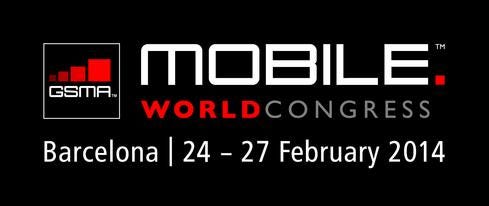Huawei cancels its Android-Windows Phone plans, just days after Asus put a dual-OS device on hold.


Mobile World Congress: 5 Hot Gadgets
Mobile World Congress: 5 Hot Gadgets (Click image for larger view and slideshow.)
Huawei no longer plans to release a "dual-OS" Android-Windows Phone smartphone, a company representative confirmed to InformationWeek.
In an emailed statement, the company said it has no plans to launch a dual OS smartphone. In an interview earlier this month with the website TrustedReviews.com, Huawei CMO Shao Yang promised an Android-Windows Phone hybrid device would hit the US market in Q2 of this year.
In its new statement, the company said it maintains "an open approach towards mobile operating systems" but focuses primarily on Android. Huawei stated that Microsoft remains a key partner, and "as long as the consumers continue to demand Windows, we will continue to supply them."
[When is Android not really Android? Read Nokia X, Android & Microsoft: 6 Facts.]
During his interview, Yang mentioned many of the talking points Huawei included in the statement it sent InformationWeek this week. He described Android devices as a priority and Windows Phone handsets as an opportunity, for example.
But whereas Huawei now claims no plans for a dual-OS device, Yang argued that an Android infusion might turn Windows Phone, which ranks a distant third in the smartphone market, into a contender. While acknowledging that consumers haven't yet embraced Microsoft's smartphone OS, he pointed out, "If they have the Android and Windows together, you can change it as you wish and it is much easier for people to choose Windows Phone."
InformationWeek asked Huawei to reconcile its new stance with Yang's earlier remarks. The company declined to categorically address whether Yang was quoted accurately, or if the company has at any time considered a dual-OS strategy.
A representative said he could only add that "Huawei's plans have changed" since Yang gave his interview.
Huawei's backpedaling comes only days after reports claimed Asus has postponed its Transformer Book Duet TD300, a dual-OS device that takes only seconds to switch back and forth between Windows 8.1 and Android. Asus introduced the device at CES in January, as part of Intel's announcement of a new line of Core chips optimized to natively run both Windows and Android. Intel reps at the show said the company expected a variety of dual OS devices to hit the market.
Both Google and Microsoft have been quiet about dual OS, but in late February, CNET, citing an industry source, reported that the Transformer Book Duet might be in jeopardy due to Asus "sparring with operating system partners." Citing people familiar with the situation, The Wall Street Journal last week reported that Asus has indefinitely postponed the device due to pressure from Microsoft and Google.
InformationWeek's Eric Zeman wondered at the time whether a similar fate might befall the Huawei dual-OS device Yang described in his interview.
Google, Microsoft, and Asus have declined to field most media questions related to dual OS. That said, Asus continues to advertise the Transformer Book Duet, albeit without a release date, on both its website and a promotional video posted to its YouTube account.
Microsoft's role in dual-OS projects is somewhat difficult to read. The Wall Street Journal reported that the company helped mothball Asus's plans, but several earlier reports claimed Microsoft might welcome Android on Windows devices, especially its slow-selling tablets. Whatever the case, if Google or Microsoft is trying to kill dual-OS projects, Huawei's not telling.
Windows Phone fans can still hold out hope for major enhancements to the platform, however. The company is expected to debut Windows Phone 8.1 in April at Build, its conference for developers. New features are rumored to include a Notification Center and Cortana, a competitor to the iPhone's Siri.
Engage with Oracle president Mark Hurd, NFL CIO Michelle McKenna-Doyle, General Motors CIO Randy Mott, Box founder Aaron Levie, UPMC CIO Dan Drawbaugh, GE Power CIO Jim Fowler, and other leaders of the Digital Business movement at the InformationWeek Conference and Elite 100 Awards Ceremony, to be held in conjunction with Interop in Las Vegas, March 31 to April 1, 2014. See the full agenda here.
About the Author(s)
You May Also Like







